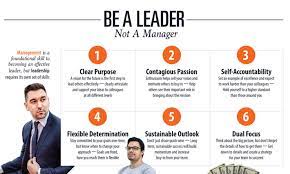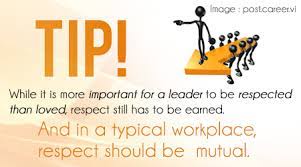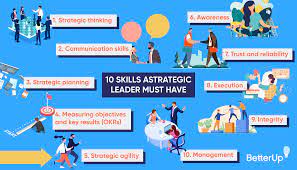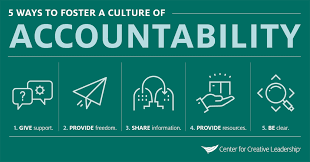How to Become a Leader (6 Tips for Being an Effective Leader)
There’s no one formula for becoming a leader. But there are a few things you can do to increase your chances of success. Here are six tips for being an effective leader:
1. Be clear about your goals and objectives.
If you want to be a leader, you need to have a clear vision of what you want to achieve. What are your goals and objectives? What are your priorities? Once you know what you want to achieve, you can start working on a plan to make it happen.
2. Communicate with your team.
Effective leaders know how to communicate with their team members. They understand the importance of building good relationships and trust within the team. They make sure that everyone is on the same page and knows what needs to be done to achieve the common goal.
3. Delegate tasks and responsibilities.
A good leader knows how to delegate tasks and responsibilities effectively. They understand that not everyone is good at everything and that it’s important to play to people’s strengths. By delegating tasks, leaders can focus on the most important aspects of the job and ensure that everything gets done efficiently and effectively.
4. Motivate your team members.
A motivating factor for many people is feeling like they’re part of something larger than themselves-a cause or a movement that they believe in deeply. As a leader, it’s important that you tap into this by sharing your own passion for the mission of
compassionate leadership
The most effective leaders are those who lead with compassion. They understand that people are complex and that everyone has their own set of circumstances that they are dealing with. They also know that everyone is capable of greatness, if given the right tools and support.
Compassionate leaders are able to see the potential in others and help them to reach their full potential. They create an environment where people feel safe to take risks and experiment. They know that failure is a part of the learning process and they are there to support their team through it.
Compassionate leaders also have high emotional intelligence. They are able to read people and understand what they are going through. This allows them to be more effective in their communication and create stronger relationships.
If you want to be an effective leader, start by developing more compassion. Practice being understanding and supportive of others. Create a safe environment for people to grow and learn. And always remember that everyone has the potential to be great.
First and foremost, leaders must be compassionate.
Compassion is the cornerstone of any good leader. Without it, a leader is nothing more than a taskmaster. A leader who is compassionate cares about the people he or she leads and wants to see them succeed.
A compassionate leader also understands that people are fallible and makes allowances for human frailty. This doesn’t mean that a compassionate leader condones bad behavior – far from it. But a truly compassionate leader will try to understand the root causes of why someone might behave in a certain way, and work with them to find a solution that benefits everyone involved.
Leaders must also be competent and have a clear vision for where they want to take their team.
A true leader is someone who can not only inspire those around them, but also has the ability to get results. In order to be an effective leader, you must have a clear vision for where you want to take your team. This means being competent in your area of expertise and being able to articulate your goals clearly. Additionally, you must be able to motivate and encourage others to buy into your vision. If you can do all these things, then you will be well on your way to becoming a successful leader.
Being a leader is not about being the boss – it’s about being a servant to those you lead.

A true leader is someone who puts the needs of others above their own. They are selfless and always looking for ways to help those they lead. A leader isn’t afraid to get their hands dirty – they are willing to do whatever it takes to help those they care about.
A leader doesn’t need to be in charge in order to be effective. In fact, some of the best leaders are actually followers. They have the ability to listen and learn from those around them. This allows them to better understand the needs of others and how they can best help them reach their goals.
The most important trait of a good leader is empathy. Leaders must be able to put themselves in the shoes of those they lead in order to truly understand what they need and how best to serve them.
Leaders must be able to communicate effectively and efficiently in order to get their message across.
In order to be an effective leader, one must be able to communicate their message in a clear and concise manner. Leaders cannot simply rely on their title or position to get people to listen to them; they need to be able to articulate their thoughts and ideas in a way that will resonate with others.
One of the most important aspects of effective communication is being able to listen. Leaders must be active listeners in order to understand what others are saying and what they need. Only by truly understanding the needs of those they are leading can leaders hope to properly address them.
Leaders also need to be aware of nonverbal cues when communicating. Body language, tone of voice, and facial expressions can all give away important information about how someone is feeling. By paying attention to these cues, leaders can better gauge how their words are being received and make necessary adjustments accordingly.
Effective communication is essential for any leader who wants to be successful in achieving their goals. By taking the time to hone their skills in this area, leaders can ensure that they are better equipped to get their message across clearly and effectively.
Leaders need to be able to motivate and inspire others in order to achieve great things.
In order to be an effective leader, one must be able to motivate and inspire others. Leaders need to have a clear vision of what they want to achieve, and they need to be able to communicate that vision in a way that gets others excited about it. Leaders also need to be able to make difficult decisions and stand by them even when things get tough. Great leaders are those who can rally others around a common cause and get them working together towards a shared goal.
Finally, leaders must be able to build relationships and trust within their team in order to create a cohesive unit.
In order to be an effective leader, one must be able to build strong relationships and trust within their team. A cohesive unit is essential in any organization, and the leader is responsible for creating that unity. Leaders must be able to communicate effectively, show respect for their team members, and create an environment where everyone feels like they are part of the same goal.
spring leadership academy
1. Be passionate about what you do.
When you’re passionate about something, it shows in your words and actions. People will take notice and be drawn to your energy. If you’re not passionate about what you do, it’ll be difficult to lead others effectively.
2. Take the time to listen.
One of the most important qualities of a leader is the ability to listen. This involves really hearing what people are saying and taking their input into consideration. Only then can you make decisions that are in the best interest of those you’re leading.
3. Be decisive.
Part of being a leader is being able to make decisions quickly and confidently. dithering will only make people lose faith in your ability to lead. If you’re unsure about a decision, consult with others and then trust your gut instinct to make the call.
4. Be transparent.
Leaders need to be open and honest with those they lead. This builds trust and respect, both of which are essential for effective leadership. People need to feel like they can rely on you and that you have their best interests at heart.
5. Be supportive.
A good leader is someone who is supportive, both emotionally and practically. People will look to you for guidance and strength, so it’s important that you offer both when they’re needed. Showing empathy and concern for those you lead will go a long way in building strong relationships with them






